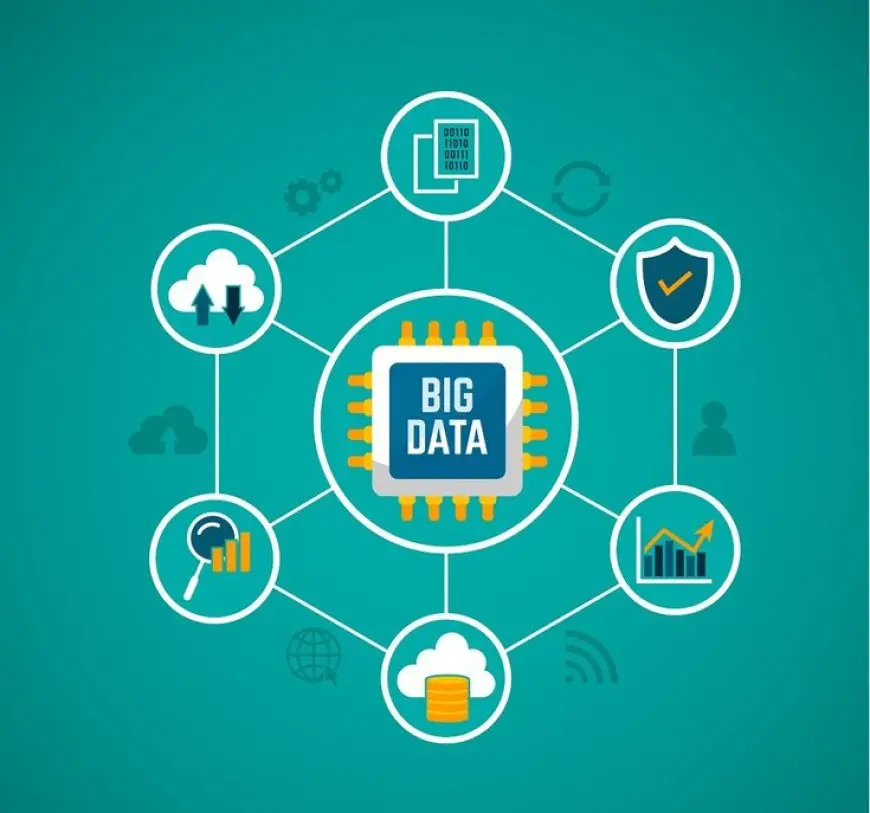"The Role of Big Data in Shaping Future Decisions"
"The Role of Big Data in Shaping Future Decisions"

Big data has emerged as one of the most powerful tools in driving decision-making processes across various industries. With the vast amount of information generated every second through digital interactions, social media, transactions, and sensor data, organizations have unprecedented access to insights that can shape their strategies, optimize operations, and predict future trends. As technology continues to evolve, big data plays an increasingly critical role in shaping future decisions, enabling businesses, governments, and individuals to make more informed, effective choices.
One of the primary ways big data is influencing decision-making is through predictive analytics. By analyzing historical data and identifying patterns, predictive models can forecast future outcomes with remarkable accuracy. In industries like healthcare, for example, big data is being used to predict disease outbreaks, patient outcomes, and treatment responses. This allows healthcare professionals to make proactive decisions about patient care, resource allocation, and even public health policy. Similarly, in finance, big data analytics can predict market trends, allowing investors to make smarter decisions about where to allocate their capital.
In business, big data is transforming how companies understand customer behavior. Through the analysis of consumer purchasing patterns, online interactions, and social media sentiment, businesses can gain deep insights into customer preferences, needs, and pain points. This enables them to tailor products, services, and marketing campaigns more effectively. For instance, companies can use big data to personalize offers and recommendations for individual customers, enhancing customer satisfaction and loyalty. Additionally, big data allows businesses to optimize their supply chains, manage inventory more efficiently, and reduce operational costs.
Moreover, big data is enabling smarter decision-making in industries such as manufacturing and logistics. By collecting and analyzing data from sensors embedded in machinery and vehicles, companies can monitor equipment performance, predict maintenance needs, and minimize downtime. This not only improves the efficiency of operations but also extends the lifespan of assets and reduces the risk of costly failures. In logistics, real-time data about traffic patterns, weather conditions, and delivery routes allows companies to optimize delivery times and reduce fuel consumption, leading to cost savings and improved customer satisfaction.
Governments and public institutions are also leveraging big data to shape decisions related to urban planning, infrastructure development, and public policy. By analyzing data on traffic patterns, population demographics, and environmental conditions, policymakers can make more informed decisions about where to build new infrastructure or how to improve existing systems. Big data can also help governments track and analyze social issues, such as unemployment or crime rates, providing valuable insights that can inform policy changes and resource allocation.
In the field of education, big data is transforming how institutions make decisions about curriculum design, student performance, and resource management. By analyzing data on student learning behaviors, educators can identify at-risk students and provide targeted interventions to improve outcomes. Additionally, big data can help educational institutions optimize class schedules, allocate resources efficiently, and personalize learning experiences for individual students.
The role of big data in shaping future decisions extends beyond professional environments. On a personal level, individuals are increasingly using big data tools to make more informed decisions about everything from healthcare to personal finance. Fitness trackers, for example, collect vast amounts of data on an individual’s physical activity, sleep patterns, and nutrition, helping users make healthier lifestyle choices. In personal finance, big data is enabling individuals to track spending habits, set budgets, and make smarter decisions about saving and investing.
However, the increasing reliance on big data also raises important ethical and privacy concerns. As organizations gather and analyze vast amounts of personal data, questions around data security, consent, and privacy protection become more pressing. Ensuring that data is used responsibly, with proper safeguards in place, is essential to maintaining public trust and preventing misuse.
Additionally, while big data provides powerful insights, it is important to recognize that data-driven decisions are not always foolproof. The quality of the data is crucial to the accuracy of the predictions and recommendations generated from it. Poor-quality data, biased algorithms, and incomplete information can lead to flawed decisions. Therefore, it is essential to use big data alongside human judgment and expertise to ensure the best possible outcomes.
Looking forward, the role of big data in decision-making will only continue to grow. Advancements in artificial intelligence (AI) and machine learning will enable even more sophisticated data analysis, unlocking new opportunities for predictive insights and automation. As the volume, variety, and velocity of data continue to increase, organizations and individuals will be better equipped to make more accurate, timely, and effective decisions. Big data’s potential to shape the future of industries, governments, and personal choices is vast, making it an indispensable tool in today’s world.
In conclusion, big data is transforming the way decisions are made, providing organizations and individuals with the tools to analyze vast amounts of information and predict future outcomes. From healthcare to business, education to public policy, big data is shaping the decisions that will define the future. While challenges related to privacy and data quality remain, the potential of big data to drive smarter, more informed decisions is undeniable. As technology continues to advance, the role of big data will only expand, offering new opportunities for innovation and progress.







